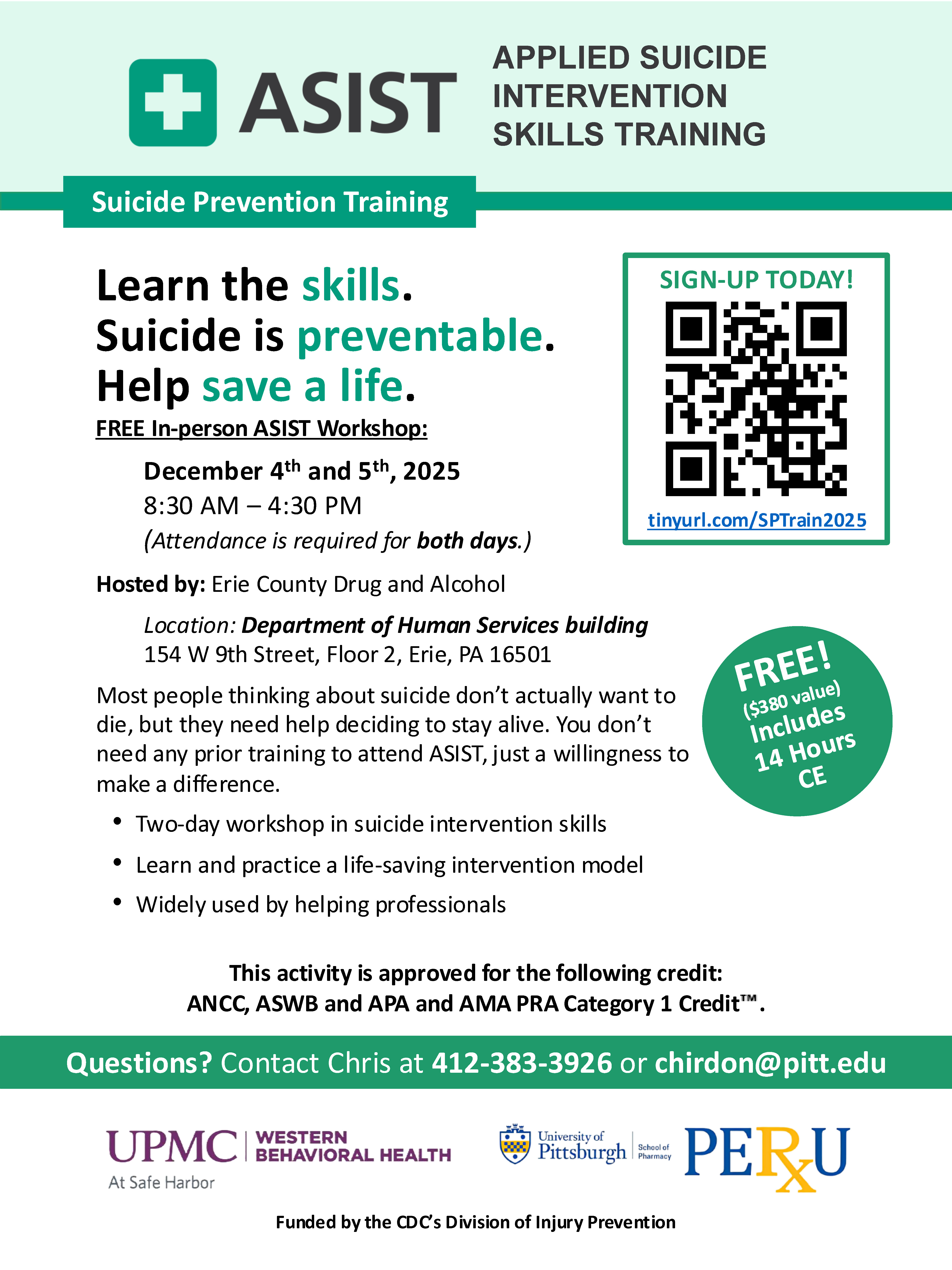
- This event has passed.
Applied Suicide Intervention Skills Training (ASIST) Sponsored By Erie Drug and Alcohol
Training Details
Duration2 Days (8:30 AM – 4:30 PM each day)
CostFree
ApprovalsThis activity is approved for the following credit: AMA PRA Category 1 Credit™, ANCC, ASWB, and AAPA Category 1 CME.
Quantity14 hours CE
ProviderPitt PERU and UPMC Western Behavioral Health at Safe Harbor
Erie County Drug and Alcohol is sponsoring this training which will occur in the Human Services Building, Floor 2: 154 West 9th Street, Floor 2, Erie, PA 16501
Audience
Open to all community members, Veterans and their families, and practitioners across healthcare, behavioral health, social services, education, first response, and peer support.
Description
ASIST is a two-day, in-person workshop that teaches a structured intervention model for suicide first aid. Through brief lectures, video examples, coached practice, and supervised simulations, participants learn to recognize invitations and warning signs, ask directly about suicide, and build a collaborative safety plan that connects the person to ongoing supports. The workshop uses a standardized format from LivingWorks, with trained facilitators who create a safe learning environment for people with varied roles and lived experience. Skills apply across home, workplace, and clinical settings, including support for Veterans and their families. By the end of the workshop, participants can organize risk information, strengthen reasons for living, map resources, and plan follow-up. ASIST has decades of evaluation and is widely used by health systems, community organizations, and first responders. The focus is practical, repeatable steps that improve confidence and effectiveness.
Outcomes
Participants increase self-efficacy, improve collaborative safety-planning skills, and strengthen coordination with family, peers, and providers for ongoing support.
Learning Objectives
- Analyze risk and safety information to understand immediate needs.
- Demonstrate the ASIST intervention model in a simulated interaction.
- Develop listening and questioning skills that identify person-centered motivations to “turn” individuals toward the future, life, and support.
- Integrate family, peers, and community resources into ongoing support.
- Evaluate next steps and arrange active follow-up and warm handoffs.
Questions? Contact Chris at 412-383-3926 or chirdon@pitt.edu
Funded by the CDC’s Division of Injury Prevention: https://www.cdc.gov

